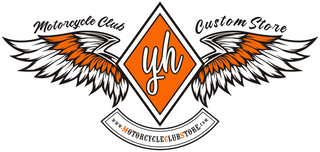Motorcycle clubs are not just about the thrill of the ride; they represent a tight-knit community built on shared passions, camaraderie, and a commitment to growth. One often-overlooked aspect of these clubs is the wealth of learning opportunities available, both within the club and through external resources. This blog explores how motorcycle clubs can utilize these opportunities to enhance their members' skills, foster stronger bonds, and promote a culture of continuous improvement.
Understanding the Importance of Learning
In any organization, continuous learning is crucial for maintaining a competitive edge and fostering innovation. Motorcycle clubs are no different. By investing in training and educational resources, clubs can ensure that their members are well-equipped to handle the challenges of riding, as well as the complexities of club management and community engagement.
Benefits of Learning Opportunities
- Skill Development: Members can enhance their riding skill, learn maintenance techniques, or even take courses in first aid and emergency response. These skills not only improve individual rider safety but also contribute to the overall safety of the group.
- Leadership Training: As clubs grow, effective leadership becomes paramount. Training in leadership and management can empower members to take on roles within the club, facilitating smoother operations and better decision-making.
- Community Engagement: Many clubs engage in charitable activities or community outreach. Training in event planning, fundraising, and public relations can help clubs maximize their impact and foster positive relationships within their communities.
- Bonding and Team Building: Participating in learning activities together can strengthen the bonds between members. Whether it's attending a workshop or going on a group ride to learn new techniques, shared experiences can enhance camaraderie.
Types of Learning Opportunities
1. Workshops and Seminars
Hosting or attending workshops and seminars can be a great way to learn. Topics could range from basic motorcycle maintenance to advanced riding techniques. These events can be organized within the club or in collaboration with local motorcycle shops and organizations.
2. Online Courses
In today's digital age, numerous online platforms offer courses related to motorcycle safety, riding techniques, and even business management for clubs. Websites like Udemy, Coursera, and local motorcycle safety organizations provide accessible and affordable learning opportunities.
3. Guest Speakers
Inviting experienced riders or industry experts to speak at club meetings can provide valuable insights. These speakers can share their experiences, offer tips on safe riding, and discuss trends in the motorcycle industry.
4. Group Rides with a Purpose
Consider organizing rides that focus on specific learning objectives, such as group riding techniques, navigating challenging terrains, or practicing emergency maneuvers. These practical experiences can be invaluable for enhancing riding skills.
5. Collaboration with Other Clubs
Engaging with other motorcycle clubs can open doors to shared learning experiences. Joint events, workshops, or ride-outs can provide diverse perspectives and foster relationships within the broader biking community.
Creating a Learning Culture
For motorcycle clubs to fully benefit from learning opportunities, it is essential to cultivate a culture that values education and growth. Here are some strategies to promote this culture:
1. Set Clear Goals
Establish specific learning goals for the club. Whether it’s improving safety skills or enhancing leadership capabilities, having clear objectives can guide the club's training efforts and keep members focused.
2. Encourage Member Participation
Promote a culture where all members feel empowered to share their knowledge and expertise. Encourage members to lead workshops, share experiences, or propose topics for discussion.
3. Recognize Achievements
Celebrate the accomplishments of members who participate in training and learning activities. This recognition can motivate others to engage in similar pursuits and reinforce the value of continuous learning.
4. Provide Resources
Ensure that members have access to learning materials, whether it's books, online resources, or contacts in the motorcycle industry. A well-stocked library or a list of recommended courses can be beneficial.
5. Foster Open Communication
Create an environment where members feel comfortable discussing their learning needs and interests. Regularly solicit feedback and suggestions for topics and resources.
Overcoming Barriers to Learning
While the benefits of learning are clear, some clubs may face challenges in implementing educational initiatives. Here are some common barriers and strategies to overcome them:
1. Time Constraints
Many members may have busy schedules that make it difficult to participate in training activities. Consider offering flexible options, such as online courses or evening workshops, to accommodate various schedules.
2. Budget Limitations
Funding educational initiatives can be a challenge for some clubs. Explore local sponsorship opportunities, grants, or partnerships with motorcycle-related businesses to help offset costs.
3. Lack of Interest
Some members may be resistant to engaging in learning activities. Emphasize the tangible benefits of training and showcase success stories from members who have improved their skills and confidence through lead .
4. Access to Resources
Not all clubs may have immediate access to training resources. Research local organizations, online platforms, and community colleges that may offer relevant courses and workshops.
Conclusion
Motorcycle clubs have a unique opportunity to leverage learning as a means of growth, safety, and community engagement. By fostering a culture of continuous improvement and actively seeking out educational resources, clubs can enhance their members' skills, strengthen bonds, and make a positive impact both on and off the road. Embrace the journey of learning and watch your club thrive!
